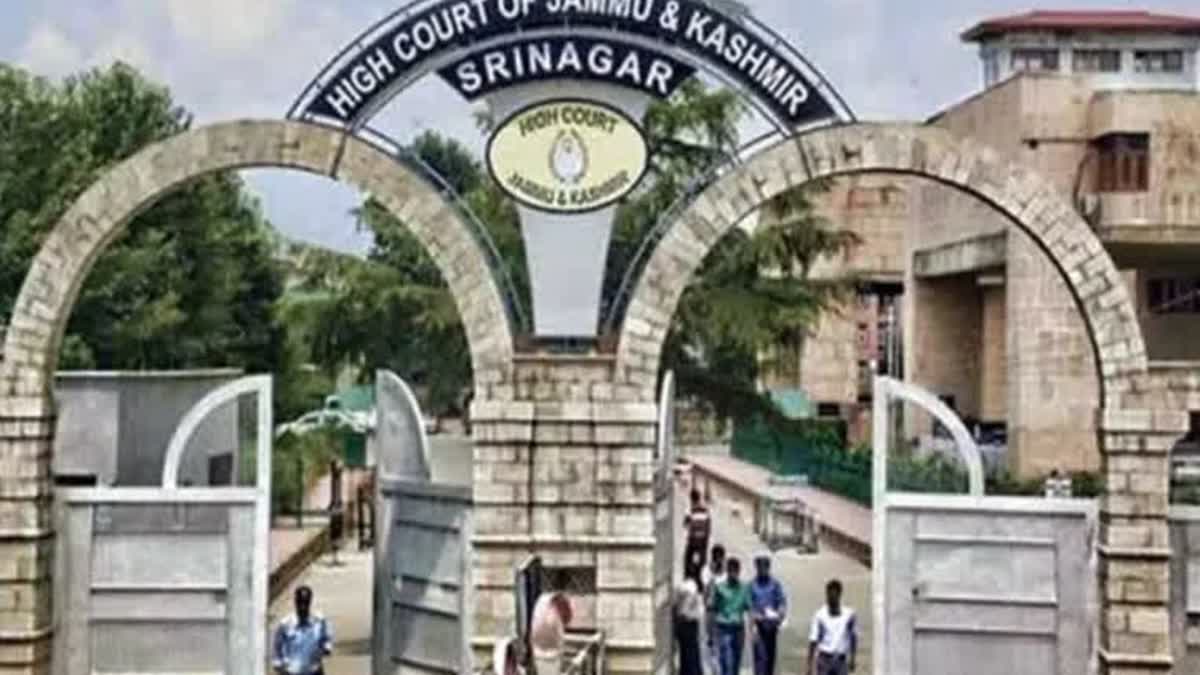Srinagar (Jammu and Kashmir): The High Court of Jammu & Kashmir and Ladakh has directed IFFCO TOKIO General Insurance Company to continue providing coverage under the Ayushman Bharat Yojana, despite the company's recent decision to withdraw from the scheme from September 1. This intervention comes after private hospitals in the region announced they would stop admitting patients under the scheme due to unpaid claims amounting to several crores.
The hospitals collectively decided to refuse admissions due to outstanding payments totaling several crores from IFFCO TOKIO General Insurance Company, which they claim has caused significant financial strain.
The court has directed IFFCO TOKIO to uphold the current terms of the Ayushman Bharat-Pradhan Mantri Jan Arogya Yojana-SEHAT (AB-PMJAY-SEHAT) program while a dispute with the Jammu and Kashmir UT government is resolved through arbitration.
Justice Rajesh Sekhri observed that the contract, governed by the Insurance Act and relevant regulations, could not be terminated unilaterally without considering public policy and interest. He noted that the petitioner had demonstrated a prima facie case for interim relief under the Arbitration Act. The court granted an injunction, directing IFFCO TOKIO to continue the existing arrangement until the dispute is arbitrated.
"On overall conspectus of the case, what comes to the fore is that contract between the parties is not in its nature determinable but hedged upon the occurrence of exigencies and eventualities enumerated therein. Therefore, the Specific Relief Act is not applicable to the present case. Functions of all Insurance Companies, public and private, are regulated under the Insurance Act and the Regulations framed thereunder. Therefore, an insurance contract is subservient to the statutory provisions of the Insurance Act and must be interpreted and construed having regard to larger public policy and public interest, particularly, when it intends to provide service of health care to the citizens."
Justice Sekhri further said: "The petitioner has succeeded to make out a prima facie case for the grant of interim measures in terms of Section 9 of the Arbitration Act and since contract between the parties is service of insurance, balance of convenience favours the grant of injunction. The damages, which may be suffered by the State Health Agency, in general, and the beneficiaries of the scheme, in particular, on account of alleged breach of contract by the insurer, may not be compensated at a future point of time in terms of money or otherwise."
The contract, set to expire on March 14, 2025, saw IFFCO TOKIO notify the government on November 1, 2023, of its decision not to renew the contract beyond March 14, 2024. The Chief Executive Officer of the State Health Agency (SHA) initially requested the insurer to continue, but IFFCO TOKIO reiterated its decision in subsequent communications, citing the need for SHA to make alternative arrangements.
Despite further appeals from SHA, including a request to adhere to the contract terms, IFFCO TOKIO remained firm on its stance. SHA invoked arbitration procedures on January 19, 2024, seeking to resolve the dispute.
The petition, filed by the Government of Jammu and Kashmir, argued that the AB-PMJAY-SEHAT scheme was designed to provide free universal health coverage to residents, including both current and retired employees and their families. The scheme offers the same benefits as the Ayushman Bharat-Pradhan Mantri Jan Arogya Yojana (AB-PMJAY), which includes an annual health insurance cover of Rs 5 lakh per family on a cashless basis through a network of healthcare providers.
Introduced to mitigate catastrophic health expenses and enhance access to quality healthcare for J&K residents, the scheme was intended to offer coverage through a network of Empanelled Health Care Providers (EHCPs). The government initiated the scheme to extend insurance coverage to specific families within the UT, with IFFCO TOKIO emerging as the successful bidder following a competitive bidding process. A contract was signed on March 10, 2022, valid for up to three years, and a Tripartite Agreement was executed with EHCPs.



